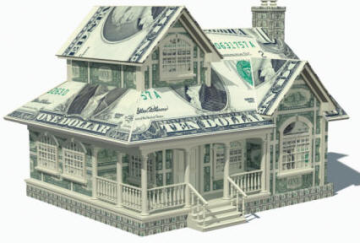The Cost of Living: Study Says Rent is Too High in RI
Wednesday, March 14, 2012
A minimum wage worker would have to work 96 hours per week, 52 weeks per year, in order to afford a two bedroom apartment in Rhode Island, according to a new report on the rising cost of housing across the country.
The Out of Reach 2012 report found that the Ocean State had the 17th highest rental costs in the country. Four other New England states, Massachusetts, Connecticut, Vermont and New Hampshire, also remain in the top fifteen for unaffordable rents. Hawaii had the highest rental costs in the country, Puerto Rico the lowest.
The reports calculates the amount of money a household must earn to afford an apartment at a Fair Market Rent (FMR), which is generally considered to be no more than 30 percent of income for housing costs.
GET THE LATEST BREAKING NEWS HERE -- SIGN UP FOR GOLOCAL FREE DAILY EBLAST“Out of Reach speaks to a fundamental truth: a mismatch exists between the cost of living, the availability of rental assistance and the wages people earn day to day across the country,” the report states. “An affordable home, providing stability and shelter, is a basic human need. Expanding the availability of affordable housing to address the unmet need of so many low income Americans should be a top public policy priority.”
The report, which was released by the by the National Low Income Housing Coalition (NLIHC), a Washington, DC-based housing advocacy group, also found that Rhode Islanders ace the eight largest gap between the cost of housing and the ability to pay for housing in the country. The gap is the difference between the Housing Wage, the hourly wage one needs to make to afford a two-bedroom apartment at the Fair Market Rent (FMR), and the average wage for a renter.
Local Findings
The local findings include:
• In Rhode Island, the Fair Market Rent (FMR) for a two-bedroom apartment is $924. In order to afford this level of rent and utilities, without paying more than 30% of income on housing, a household must earn $3,081 monthly or $36,974 annually. Assuming a 40-hour work week, 52 weeks per year, this level of income translates into a Housing Wage of $17.78.
• In Rhode Island, a minimum wage worker earns an hourly wage of $7.40. In order to afford the FMR for a two-bedroom apartment, a minimum wage earner must work 96 hours per week, 52 weeks per year. Or, a household must include 2.4 minimum wage earners working 40 hours per week year-round in order to make the two bedroom FMR affordable.
• In Rhode Island, the estimated mean (average) wage for a renter is $11.64. In order to afford the FMR for a two-bedroom apartment at this wage, a renter must work 61 hours per week, 52 weeks per year. Or, working 40 hours per week year round, a household must include 1.5 workers earning the mean renter wage in order to make the two bedroom FMR affordable.
“This report verifies what we are seeing day to day here in our state,” said Brenda Clement, Executive Director for Housing Action Coalition of RI. “Despite the national trumpeting of a recovery, what we see on the frontlines is more and more Rhode Island families struggling to remain in their home or find an adequate, safe and affordable place to live.”
The report highlights the need for policymakers to invest in strategies that will ensure a long-term supply of affordable housing in Rhode Island. This year, affordable housing advocates are working to ensure that the legislators establish a dedicated funding stream for affordable housing and ensuring that the affordable housing bond is on the ballot this fall.
Advocates highlight the importance of state investments in affordable housing programs such as the Neighborhood Opportunities Program (NOP) and the Building Homes RI (BHRI) that together have produced 2,462 units of affordable housing including homeownership and rental units.
“Housing is the cornerstone to our state’s economic growth and investing in affordable housing production will help our state on the path to economic recovery,” said Chris Hannifan, Executive Director of the Housing Network, the state’s association of Community Development Corporations (CDCs). “The Housing Network, and its twenty affordable housing developers, look forward to working with the General Assembly to make sure that the pieces of the affordable housing puzzle are put in place through mechanisms such as a dedicated funding stream and an affordable housing bond on the fall ballot.”
If you valued this article, please LIKE GoLocalProv.com on Facebook by clicking HERE.




